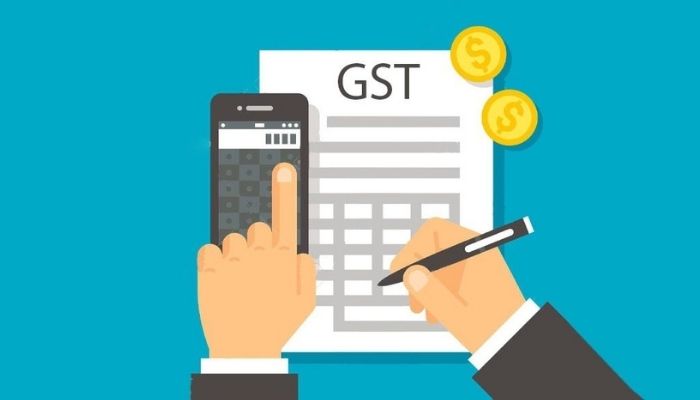The Telangana High Court recently handed down a pivotal judgment in the case of "Care College of Nursing and others Vs Kaloji Narayana Rao University of Health Sciences," establishing the GST liability of private medical colleges for affiliation and inspection fees. This article delves into the details of the case, the court's rationale, and the far-reaching implications of this decision.
| Table Section |
|---|
| 1. Introduction |
| 2. Understanding the Case |
| 3. The Core Argument |
| 4. Court's Interpretation |
| 5. Implications for Private Medical Colleges |
| 6. Compliance and Review |
| 7. Conclusion |
Understanding the Case:
In a series of writ petitions, numerous educational institutions, particularly nursing colleges affiliated with Kaloji Narayana Rao University of Health Sciences (K.N.R.U.H.S.), contested a demand notice from the university. This notice required them to remit 18% GST, comprising 9% SGST and 9% CGST, on affiliation and inspection fees starting from July 2017. The educational institutions argued that they should be exempt from GST based on specific provisions.
The Core Argument:
The primary contention raised by the petitioners revolved around Notification No.12 of 2017 dated June 28, 2017, which provides exemptions for specific services rendered by educational institutions. These exemptions encompass services offered to students, faculty, and staff, in addition to services like transportation, catering, security, cleaning, and those related to admissions and examinations. Notably, the notification did not explicitly mention inspection and affiliation fees.
The educational institutions maintained that these fees should qualify for exemption. They argued that the term "educational institution" encompassed the university itself, and pointed out the exemption granted for entrance examination fees, which bore similarities to affiliation and inspection fees. The petitioners also cited a favorable judgment from the Karnataka High Court in support of their claims.

Court's Interpretation:
The Telangana High Court, in its ruling, sided against the educational institutions. The court stressed the importance of strict interpretation when dealing with GST exemption notifications, particularly when ambiguity is present. The court noted that while Notification No. 12 of 2017 did exempt certain services provided by educational institutions, it did not extend to inspection and affiliation fees.
Implications for Private Medical Colleges:
This landmark judgment carries significant consequences for private medical colleges and educational institutions. It underscores the critical need for unambiguous language in GST exemption notifications and acts as a reminder for educational institutions to meticulously evaluate their GST obligations.
Compliance and Review:
In light of this decision, private educational institutions, especially those offering medical courses, should consider reviewing their financial and tax obligations. It is essential to ensure compliance with GST regulations to prevent potential liabilities and to adapt their financial strategies accordingly.
(FAQS)
Q1: What is the Telangana High Court's recent ruling regarding private medical colleges and GST?
A1: The Telangana High Court has ruled that private medical colleges are liable to pay Goods and Services Tax (GST) on affiliation and inspection fees.
Q2: What prompted the court's decision in the "Care College of Nursing and others Vs Kaloji Narayana Rao University of Health Sciences" case?
A2: The case was initiated by several educational institutions, primarily nursing colleges affiliated with Kaloji Narayana Rao University of Health Sciences, challenging a demand notice from the university that required them to pay 18% GST on affiliation and inspection fees.
Q3: What was the main argument presented by the petitioners in this case?
A3: The petitioners contended that they should be exempt from GST based on a specific provision, namely Notification No. 12 of 2017, which provides exemptions for services rendered by educational institutions. They argued that this exemption should extend to affiliation and inspection fees.
Q4: How did the Telangana High Court interpret the exemption provisions and reach its decision?
A4: The court ruled against the educational institutions, emphasizing that GST exemption notifications should be interpreted strictly and against the taxpayer if there is any ambiguity. While the notification exempted certain services provided by educational institutions, it did not explicitly include inspection and affiliation fees.
Q5: What are the implications of this decision for private medical colleges and educational institutions?
A5: The judgment has significant implications, as it underscores the importance of clear and specific exemptions in GST laws. It reminds educational institutions to carefully assess their GST liabilities and ensure compliance with tax regulations to avoid potential liabilities.
Q6: What should private medical colleges and educational institutions do in response to this ruling?
A6: In response to this decision, these institutions should consider reviewing their financial and tax obligations. They need to ensure compliance with GST regulations and adapt their financial strategies to align with the court's interpretation.
Q7: How does this ruling affect the broader landscape of GST in India?
A7: While this ruling specifically pertains to private medical colleges and their GST liability on affiliation and inspection fees, it serves as a reminder of the importance of clarity in GST exemption notifications. It may have broader implications for the interpretation of such notifications in various contexts.
Conclusion:
The Telangana High Court's ruling has brought clarity to the issue of GST liability for private medical colleges concerning affiliation and inspection fees. This verdict highlights the importance of precise wording in GST exemption notifications and stresses the importance of adhering to tax regulations. Private medical colleges must remain vigilant about their GST obligations and be prepared to adapt to an ever-evolving tax landscape.


